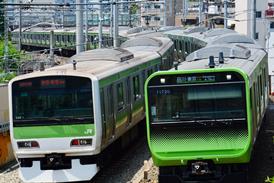Close menu
- Home
-
News
- Back to parent navigation item
- News
- Traction and rolling stock
- Passenger
- High speed
- Freight
- Infrastructure
- Policy
- Technology
- Ticketing
- Business
- Research, training and skills
- Accessibility and inclusion
- People
- Urban rail news
- Suburban and commuter rail
- Metro
- Light rail and tram
- Monorail and peoplemover
- Regions
- InnoTrans
- In depth
- Events
- Data
- Maps
- Tenders & Jobs
- Sponsored content
- Insights
Funding uncertainty puts London Underground’s Piccadilly and Bakerloo modernisation plans at risk
By Metro Report International2023-11-22T13:02:00

UK: Securing £500m of government grant funding to pay for major projects in 2024-25 is critical for the future of the London Underground, according to Transport for London Chief Capital Officer Stuart Harvey.
Already have an account? LOG IN
To continue…
You’ve reached your limit of content for the month














